SPECworkstation 3.0.2 Storage Benchmark
SPECworkstation benchmark is an excellent benchmark to test systems using workstation-type workloads. In this test, we only ran the Storage component, which is fifteen separate tests.
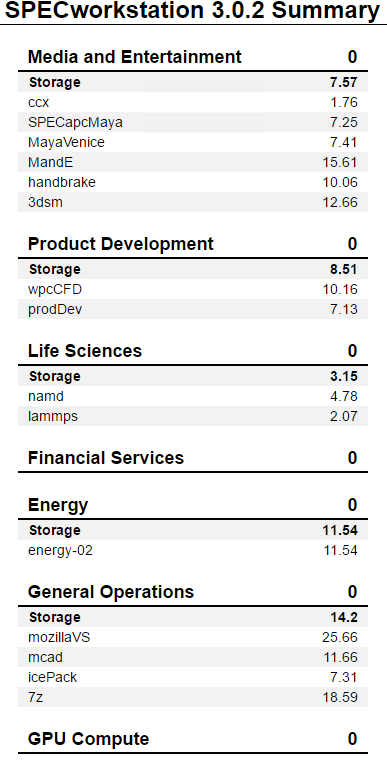
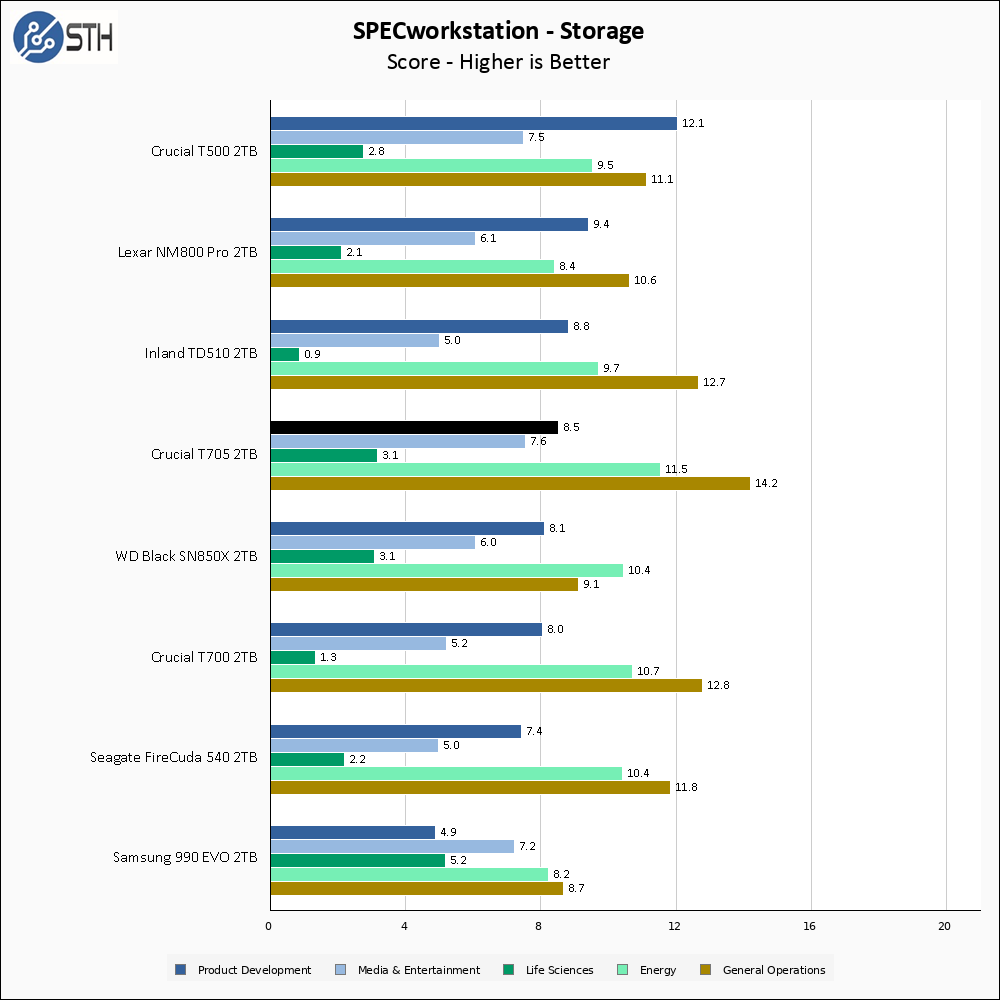
We sort SPECworkstation by the Product Development score, and this is the first time the T705 has not topped my chart as a result. I made special note of the Crucial T500’s strong performance in SPEC, and you can see it here again. With that said, the T705 is incredibly strong in SPEC; it turns in the best results I have yet seen in Media, Energy, and General Operations, while taking third place in Life Sciences. In fact, the entire Crucial T series performs well in SPEC overall.
Sustained Write Performance
This is not necessarily a benchmark so much as trying to catch the post-cache write speed of the drive. While I am filling the drive with data to the 85% mark with ten simultaneous write threads, I monitor the drive for the write performance to dip to the lowest steady point and grab a screenshot.
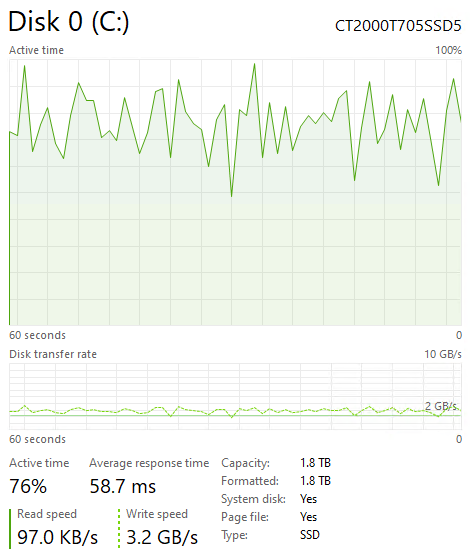
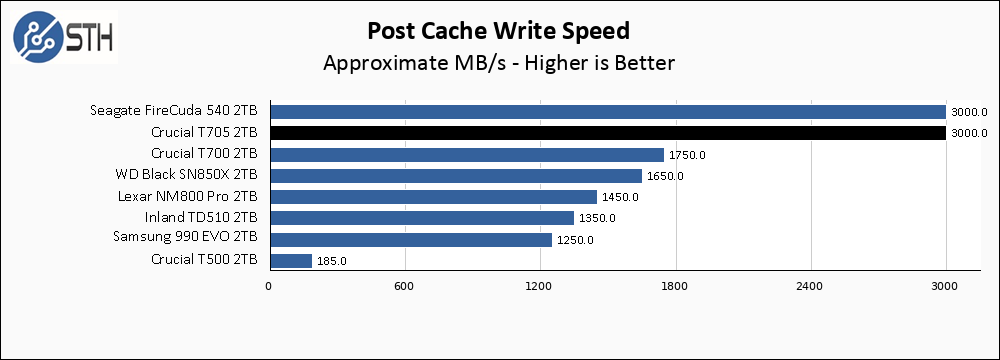
My method of data generation for filling drives has limitations. As a result, and similar to when I tested the FireCuda 540, the sustained write performance of the T705 is pushing my ability to measure it with this test. In effect, both the T705 and the FireCuda 540 results should be considered ‘off the chart’ and are great here.
Temperatures
We monitored the idle and maximum temperature during testing with HWMonitor to get some idea of the thermal performance and requirements of the drive.

My T705 came equipped with a non-removable heatsink, and even with it installed, my drive still made it to 81C. Under load, the T705 can generate a lot of heat. The use of a heatsink is highly recommended.
Final Words
The Crucial T705 2TB is planned for release on March 12th, 2024, at a suggested MSRP of $439 for the model with the heatsink and $399 without. That represents around a $100 premium versus the previous-generation T700. Other 14 GB/s Gen 5 drives are coming, but I have not reviewed them yet and do not have pricing to use as a comparison point.
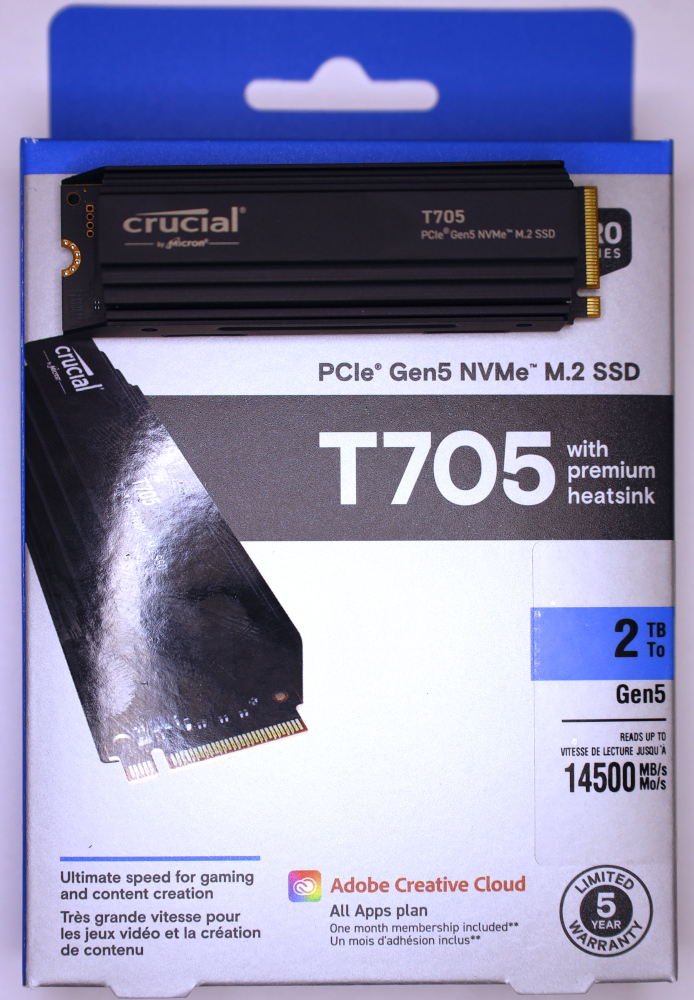
The Crucial T705 is just fast. That is its entire reason for being: go as fast as possible. And in that regard, it is a complete success. A drive review rarely shows such performance dominance, but the T705 pulled it off with perhaps the exception of the ATTO benchmark results. Once I get other 14GB/s drives in for testing, it may end up with some company on my charts, but for now, the Crucial T705 sits in a class all by itself. Whether the extra performance is worth the price premium will be up to the individual buyer. With that said, if you want the fastest that you can get and are willing to wait until March 12th, then the Crucial T705 is a serious contender.


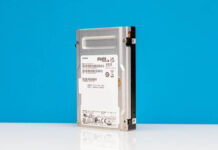
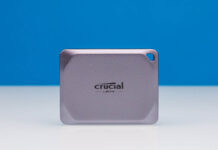
Does anyone have any specs comparing the T700/705/other Gen5 NVMe to options like Intel Optane 905P. I’d love to see some comparison for real-world groups like productivity, gaming, and server use.
It seems like a balancing act to find the best throughput and latency combo. I don’t really have a need for high speed storage in work environment, but my home workloads might.
So, here we have another benchmark optimized drive… that shows very poor 512/4K read performance…
These benchmark optimized drives generally attain these sequential speeds for only a few gigabytes before they fall off rapidly.
Looking at these numbers, this drive when written from start to finish probably does 250Mbps on average or even less…
So is this really a 10Gbps drive? No, stop using 8Gb benchmarks and write an actually dataset to the entire drive!
Sjoer van der Ploeg,
You must have missed the part where I wrote 85% of the drive from start to finish and the drive held 3 GB/s+ the entire time. That’s a fair bit better than your ‘probably does 250Mbps on average or even less’
What is the claimed active power, when interrogated using nvme utils? I’d love to know if this heatsink makes any sense.
I general it would be awesome if the SSD reviews could include a readout of all the relevant NVMe parameters like power states, LBA format, etc.
U suppose these speeds will be the norm in a few years and yeah I wwouldn’t say no to the 4TB as my X670E-I ITX board does support it. But wow those prices!